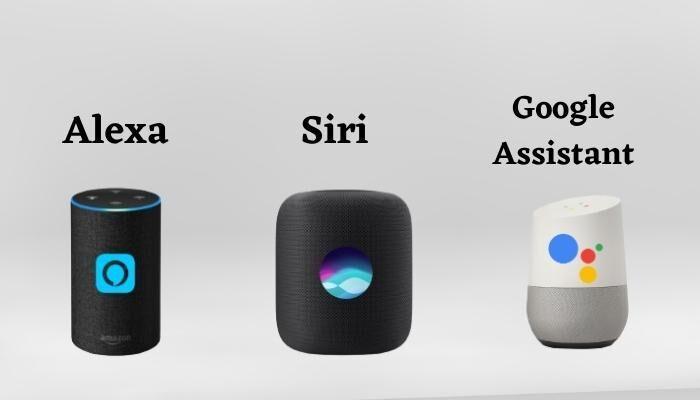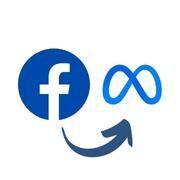Web 3.0 – Future Of The Internet.
Sneha Sanjay Jadhav1 , Dattatray Apparao Gund2, Asst.prof. S. V. Thorat3
Abstract In an ongoing organized world, the Web has emerged as the most practical method of communication. During the early improvements of the Internet, there was a bit of thought that one day the progress of this Internet web would be a huge blow. In such a short time frame, Web 2.0 and now Web 3.0 have reached exceptional heights in the Internet industry. The split from Web 1.0 to Web 2.0 was advertised in virtually 10 years. However, shortly after Web 2.0, another Web 3.0 advance has increased interest and many inquiries from engineers, customers, and controllers. What is really needed at this stage,whatare the driving variables, how unique are they in terms of Web 2.0 and the Semantic Web
Keyword – Semantic web, web1.0, web 2.0, blockchain, Decentralized
I. INTRODUCTION
Web3.0isaneweraoftheWorldWideWeb,whereWeb2.0 innovationsarecloselylinkedtotheSemanticWeb,allowing bothhumansandmachinestoaccessandusedatastoredon theWeb.WithWeb3.0,machinesactuallyhavetoperform tasksthatrequirehumaninsight,significantlyreducingtime and effort on the Internet. Web 3.0, aimed at making the Internet a better and smarter organization, is the predecessor of the complete Semantic Web and replaces Web 2.0. After quite a long time working on a centralized framework,theInternetwillleapforwardwiththehelpof blockchain and its decentralized center. Migrating to Web 3.0 addresses the next stage of the Web, with freedom of information, practices, and common activity paths as standard. Web 3.0 innovation is returning privileges to customers by focusing on collaborative collaboration and discouraging collaboration with a unified organization. However,thischangeisdifficulttounderstand,andofcourse many high-tech business visionaries and regular web consumersstilldon'tknowexactlywhatWeb3means.Web 2.0providesimportantauthorityforcollaborativeuseofthe Internet,allowingindividualstoconnecttoinformationand contribute to their perspective through wikis, web journaling, personal communication environments, and more.Models:Wikipedia,Blogger,Digg,Technorati,Stumble upon,MySpace,Facebook,Flickrandmore.Theideabehind the use of the Semantic Web is to capture and decode specificsituationsandideasofinformation.Then,whenthe
customersearchesforananswer,Web3.0providestheend customer with the most reliable and meaningful results. Therefore, this third era of the Internet is the era of evaluating customized connections to machines and websites,justaswearetalkingtoother
II. What is Web 3.0
In the semantic web, the data is analyzed and interpreted in terms of context, concept, and relatability. Becauseofthisweb3.0applicationscanprovidethemost accurateandrelevantresultstotheend-users.
Dataareconnectedinadecentralizedway-usuallyina blockchain. This is a major leap forward from the current web2.0’scentralizedarchitecture.
Web 3.0 is going to be considerably more secure, scalable, and offer better privacy for users. Most big tech companies make insane profits by exploiting user data as usershavelittletonocontroloverit.
Web3.0willmakeitpossibleforuserstohavegreater control and if they wish to share the data then to be compensatedforit.Asaresult,userswillretainprivacyand ownership of their data while making it available for companiestotargetthem.
Web 3.0 will also allow sites and applications to use data more effectively and tailor information to individual users.
III. KEY FEATURES OF WEB 3.0
Themainaspectofweb3.0is:
Open – "Open" in the sense that it was built using open source software, developed by an open and available communityofdevelopers,andrealizedforthepublic.
Untrusted – Thedecentralisednetworkoffersfreedomto users to act publically associated in camera whereas not associatenegotiatorexposingthemtorisks,thus“trustless” info
No Permission – Anyone,includingusersandcontributors, cancontributewithoutthepermissionofthestatebody.
Popularization – Web3.0makesthewebofferedanytime, anywhere.Atsomepurpose,devicesconnectedtotheweb arenotanylongerrestrictedtocomputersandsmartphones, asininternetapairof.0.WiththeIOTthistechnologyallows the event of assorted new kinds of good devices. Web 3.0 could be a new generation of the globe Wide internet whereverinternetapairof2.0technologyconnectstothe 3.0sanctionativeeachhumansandmachinestoaccessand usedataholdonthenet.
Web3.0allowsmachinestoperformtasksthatneedhuman intelligence,considerablyreducingtimeandenergyonthe net.Withthegoalofcreatingthewebastrongerandsmarter network,Web3.0istheforerunnerofthewholelinguistics internetandthereforethesuccessortointernetapairof2.0.
Semantic Web: Semantics is the study of relationships between words, patterns, and data. In a semantic web, machinescananalyzeandestablishrelationships,justlike humansdo,betweeninformationonit.
Asemanticwebwouldconsiderbothofthefollowingtwo sentencessame:
IloveProgramming
I<3Programming
Semantics would help web apps to decode meaning, emotions, and hidden patterns to deliver a better online experience.
AI Driven: Web3.0heavilyreliesonAItechslikeBigData, DataAnalytics,MachineLearning,andDeepLearning.Apps and sites are getting smarter to understand the mood, emotions,andexpressionsoftheirusers.Somewebsitesare soadvancedthattheycanevenunderstandsarcasm!
In Web 2.0, this was mainly a human-driven rules-based processsusceptibletocorruption,bias,andoversight.The processwasalsotooslowtomeettheincreasingdemandsof millionsofusers.
Ubiquitous: Ubiquityrefersleadstoaccessibility,openness, transparency, and innovation. Not only the people with resources,butthosewithlimitedresourcestoocanmakeuse ofWeb3.0services.
Asmostoftheprocessingisdoneatthebackend,userscan use even simple and cheaper devices to connect and transact.
Spatial and 3D Graphics: Web 3.0 is going to be more spatialthanksto3DgraphicsandAR/VRinnovations.The lines between the real world and the cyber world have startedtoblurasmultiplenew3Dvirtualworldsevolve.
Immersive technologies likeAugmented Reality (AR) and Virtual Reality (VR) are used in gaming, medicine, engineering,tourism,education,andmanyotherareas.
IV HOW DOES WEB 3.0 WORK ?
The idea behind web 3 is to make glancing through the Internetlotsquicker,lesscomplicated,andextratalentedto copewithevencomplicatedhuntsentencesinsidetheblink ofaneye.
Inaninternet2.0utility,a purchaserdesirestocooperate with its frontend, which imparts to its backend, which in addition speaks with its facts set. The entire code is facilitated on included servers that are shipped off customersviaanInternetprogram.
Web3hasneitherfocusedfactsbasesthatkeeptheutility country nor an included net server in which the backend intentdwells.Allmattersbeingequal,there'sablockchainto manufacture packages on a decentralized country system andstoredupviawayofmeansofunknownhubsonthenet.
V. EVOLUTION OF WEB
(1.0 TO 2.0 TO 3.0)
1. Web 1.0 :
In the 1960s, Web 1.0 was a static format with just text browserslikeELISA,followedbyHTML,whichimprovedthe visual attractiveness of the pages, and the first visual browserslikeNetscapeandInternetExplorer.Web1.0isthe firststageoftheWorldWideWeb'sevolution.Therewere formerly only a few content creators. On the other hand, mostusersonWeb1.0werecontentconsumers.
2. Web 2.0:-
Tom OReilly invented the phrase Web 2.0 in 2004 to describethesecondgenerationofwebsitemodels.Websites that emphasise user-generated content, ease of use, and interoperabilityforendusersarereferredtoasWeb2.0.
3. Web 3.0:-
WithtechnologieslikeAJAX,Web3.0originallydebutedin 2006inanarticlebyWeb2.0criticJeffreyZeldman.Web3.0 isaconceptthatreferstoanumberofadvancementsinweb usage and cross-path interaction. In this case, the data is shared rather than owned, and services display diverse viewsofonlinedata.
VI. COMPONENTS
Theweb3containstheprinciplesandapparatusesofXML, XML Schema, RDF, RDF Schema and OWL that are coordinatedintheSemanticWebStack.TheWebOntology

LanguageOverviewdepictsthecapacityandrelationshipof everyoneofthesepartsoftheweb3.0:
1.XMLgivesanessentialgrammartocontentdesigninside archives,yetconnectsnosemanticswiththeimportanceof thesubstanceheldinside.XMLisn'tatpresentanimportant partofSemanticWebinnovationsbyandlarge,aselective linguistic uses exists, like Turtle. Turtle is a true norm, however has not experienced a proper normalization process.
2.RDF isa basiclanguageforcommunicatinginformation models, which allude to objects ("assets") and their connections.ARDF-basedmodelcanbeaddressedinXML languagestructure.
3.RDFSchemabroadensRDFandisajargonfordepicting propertiesandclassesofRDF-basedassets,withsemantics for summed up pecking orders of such properties and classes.
4. OWL adds more jargon for depicting properties and classes: among others, relations between classes (for example disjointness), cardinality, correspondence, more extravagantcomposingofproperties,qualitiesofproperties (forexampleevenness),andlistedclasses.
VII BENEFITS OF WEB 3.0
Web 3.0 it is decentralized is a word used to describe a systemwherenosinglepersonorgrouphascontrolit'sthe oppositeofcentralizedwhereoneentitycontrolseverything decentralizationhasbeenaroundforquitesometimeand nowmorethaneverbeforewe'rerealizingthetruepotential it'sfasterweb3technologyisanewandimprovedversionof thecurrenttechnology.
VIII.BEST WEB 3.0 APPLICATIONS
Web3.0isalreadybeingdeployedtoavarietyofusesand appsinmultipleindustries.Thecutting-edgetechnologies increaseproductivityandenhancecustomersatisfaction.
Letusexaminesomeofthebestapplications:
1)Siri, Alexa, and Google Assistant:

Thevoiceassistantsfromthetop threetechcompanies in theworld–SirifromApple,AlexafromAmazon,andGoogle AssistantfromGoogle–usethesemanticweb.Thissoftware leveragevoicerecognitionandnaturallanguageprocessing tohelpusersdothingstheycouldnotdoearlier.Todaythese assistantscanofferanswerstoavarietyofquestionsfrom theirusers.
2)Facebook Meta:
Ifitwereanation,itwouldbethemostpopulousoneonthe earth.TheleadingsocialnetworkplatformsFacebookand Instagram from the Meta are increasing in their reach exponentiallyandimpactusers’livesdaily.Usersfindand createnewcommunitiesandbondswiththehelpofWeb3.0 technologies. Apps build around the Facebook universe furtherincreasecustomerinteractionandengagement.

3)Flicker:

Thephotographyandphoto-sharingwebsiteFlickrallows userstosearch,create,upload,andsharetheirpictureswith peopletheycareabout.Withover17millionactivevisitors per month, Flickr has one of the largest public databases withthousandsofcategoriesandbillionsofphotosinthem.
IX. FUTURE OF THE INTERNET:
Web 3.0 creates an ecosystem for users, by users, and of users.Theend-userswouldbeincompletecontroloftheir dataontheinternetandwilldrivethebusinessofthefuture.
The creator-driven economy where creativity, innovation, anduniquenessruleswouldbesupportedbytechnologiesof

Web3.0.accordingtouse,thefutureoftheinternetisbright becauseofthefollowingreasons:

Moretrustworthybecauseofdecentralizedpublic records
Nomoredependentoncentralizedauthoritiesand datarepositories
Personalizedinteractionswithusers
FasterandsuperiorsearchresultsdrivenbyAI
Nomoredependencyonmediators
Morepeer-to-peercommunicationandconnectivity
X. CONCLUSION
Web 3.0 is about the web's backend, about developing tremendousmachine-to-machinecommunication.Whenthe Web3.0uigainstraction,itwillfundamentallychangehow weusetheInternet.Humanswillnolongerberequiredto conducttoughjobssuchasconductingInternetresearchand retrievingpreciseinformation.
All of these duties will be performed more easily by machines.Allwehavetodonowisexaminethedata,update itasneeded,andbuildanynewobjectwewant.
XI. REFERANCES:-
en.wikipedia.org/wiki/SemanticWebwww.iiea.com/Web3.0 www.suite101.com/content/what-is-web 30-a61407 www.readwriteweb.com/.../web_30_when _web_sites_become_web_services.php www.alistapart.com/articles/web3point0
